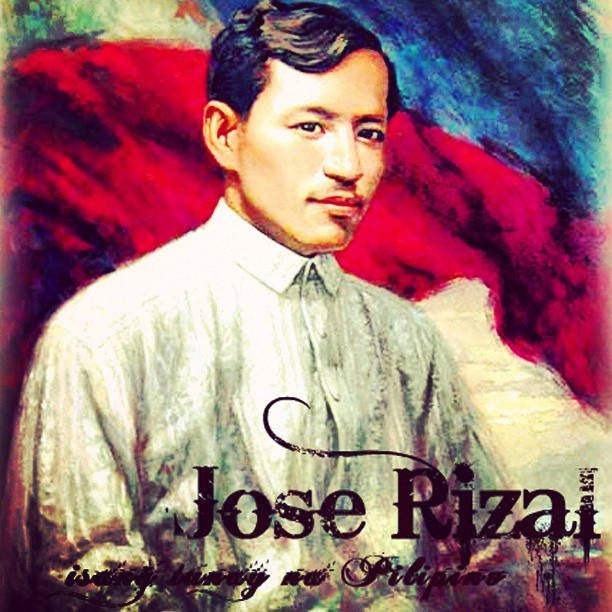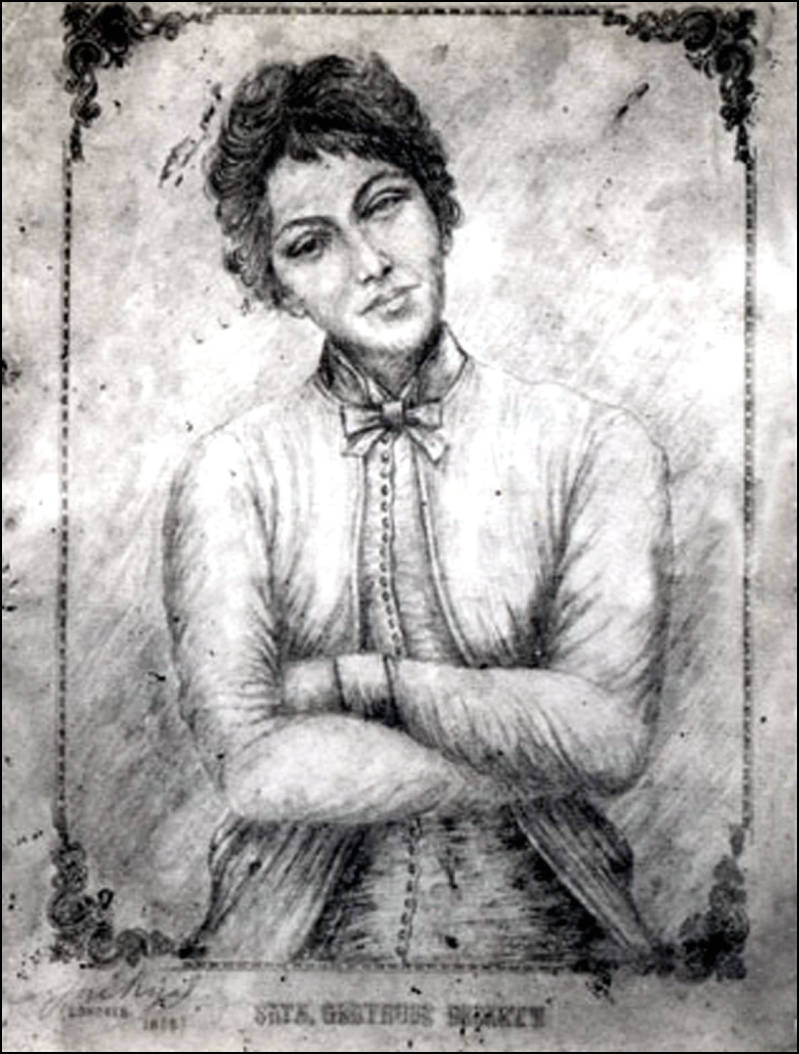



José Rizal
Synopsis
José Rizal was born on June 19, 1861, in Calamba, Philippines. While living in Europe, Rizal wrote about the discrimination that accompanied Spain's colonial rule of his country. He returned to the Philippines in 1892, but was exiled due to his desire for reform. Although he supported peaceful change, Rizal was convicted of sedition and executed on December 30, 1896, at age 35.
Early Life
On June 19, 1861, José Protasio Rizal Mercado y Alonso Realonda was born in Calamba in the Philippines' Laguna Province. A brilliant student who became proficient in multiple languages, José Rizal studied medicine in Manila. In 1882, he traveled to Spain to complete his medical degree.
Writing and Reform
While in Europe, José Rizal became part of the Propaganda Movement, connecting with other Filipinos who wanted reform. He also wrote his first novel, Noli Me Tangere (Touch Me Not/The Social Cancer), a work that detailed the dark aspects of Spain's colonial rule in the Philippines, with particular focus on the role of Catholic friars. The book was banned in the Philippines, though copies were smuggled in. Because of this novel, Rizal's return to the Philippines in 1887 was cut short when he was targeted by police.
Rizal returned to Europe and continued to write, releasing his follow-up novel, El Filibusterismo (The Reign of Greed) in 1891. He also published articles in La Solidaridad, a paper aligned with the Propaganda Movement. The reforms Rizal advocated for did not include independence—he called for equal treatment of Filipinos, limiting the power of Spanish friars and representation for the Philippines in the Spanish Cortes (Spain's parliament).
Exile in the Philippines
Rizal returned to the Philippines in 1892, feeling he needed to be in the country to effect change. Although the reform society he founded, the Liga Filipino (Philippine League), supported non-violent action, Rizal was still exiled to Dapitan, on the island of Mindanao. During the four years Rizal was in exile, he practiced medicine and took on students.
Execution and Legacy
In 1895, Rizal asked for permission to travel to Cuba as an army doctor. His request was approved, but in August 1896, Katipunan, a nationalist Filipino society founded by Andres Bonifacio, revolted. Though he had no ties to the group, and disapproved of its violent methods, Rizal was arrested shortly thereafter.
After a show trial, Rizal was convicted of sedition and sentenced to death by firing squad. Rizal's public execution was carried out in Manila on December 30, 1896, when he was 35 years old. His execution created more opposition to Spanish rule.
Spain's control of the Philippines ended in 1898, though the country did not gain lasting independence until after World War II. Rizal remains a nationalist icon in the Philippines for helping the country take its first steps toward independence.
- I do not write for this generation. I am writing for other ages. If this could read me, they would burn my books, the work of my whole life. On the other hand, the generation which interprets these writings will be an educated generation; they will understand me and say: 'Not all were asleep in the nighttime of our grandparents.'
- Life, Work, Understand
I may be what my enemies desire me to be, yet never an accusation are they able to hurl against me which makes me blush or lower my forehead; and I hope that God will be merciful enough with me, to prevent me from committing one of those faults which would involve my family. - Family, God, Hope
He who does not know how to look back at where he came from will never get to his destination. - Came
The youth is the hope of our future. - Future, Hope, Youth
I have recommended in my writings the study of civic virtues, without which there is no redemption. I have written likewise (and repeat my words) that reforms, to be beneficial, must come from above, that those which come from below are irregularly gained and uncertain. - Words, Study, Written
My countrymen, I have given proofs that I am one most anxious for liberties for our country, and I am still desirous of them. But I place as a prior condition the education of the people, that by means of instruction and industry our country may have an individuality of its own and make itself worthy of these liberties. - Education, Means, Itself
If the Philippines secure their independence after heroic and stubborn conflicts, they can rest assured that neither England, nor Germany, nor France, and still less Holland, will dare to take up what Spain has been unable to hold. - Less, Rest, Hold
There can be no tyrants where there are no slaves. - Slaves, Tyrants
It is a useless life that is not consecrated to a great ideal. It is like a stone wasted on the field without becoming a part of any edifice. - Life, Great, Becoming
To doubt God is to doubt one's own conscience, and in consequence, it would be to doubt everything; and then what is life for? - Life, God, Doubt
No one ceases to be a man, no one forfeits his rights to civilization merely by being more or less uncultured, and since the Filipino is regarded as a fit citizen when he is asked to pay taxes or shed his blood to defend the fatherland, why must this fitness be denied him when the question arises of granting him some right? - Fitness, Less, Since
Since it is necessary to grant six million Filipinos their rights, so that they may be in fact Spaniards, let the government grant these rights freely and spontaneously, without damaging reservations, without irritating mistrust. - Government, Fact, Since
The divine flame of thought is inextinguishable in the Filipino people, and somehow or other it will shine forth and compel recognition. It is impossible to brutalize the inhabitants of the Philippines! - Impossible, Divine, Somehow
He who does not love his own language is worse than an animal and smelly fish. - Love, Language, Worse
One only dies once, and if one does not die well, a good opportunity is lost and will not present itself again. - Good, Once, Again
We young Filipinos are trying to make over a nation and must not halt in our march, but from time to time turn our gaze upon our elders. We shall wish to read in their countenances approval of our actions. - Time, Read, Nation
When there is in nature no fixed condition, how much less must there be in the life of a people, beings endowed with mobility and movement! - Life, Nature, Less
Wealth brings with it refinement, the spirit of conservation, while poverty inspires adventurous ideas, the desire to change things, and has little care for life. - Life, Change, While
As God has not made anything useless in this world, as all beings fulfill obligations or a role in the sublime drama of Creation, I cannot exempt from this duty, and small though it be, I too have a mission to fill, as for example: alleviating the sufferings of my fellowmen. - God, Cannot, Small
Of what use are all the codes in the world, if by means of confidential reports, if for trifling reasons, if through anonymous traitors any honest citizen may be exiled or banished without a hearing, without a trial? - Means, Use, Honest
While a people preserves its language; it preserves the marks of liberty. - While, Language, Liberty
Justice is the foremost virtue of the civilizing races. It subdues the barbarous nations, while injustice arouses the weakest. - While, Justice, Virtue
Necessity is the most powerful divinity the world knows, and necessity is the resultant of physical forces set in operation by ethical forces. - Powerful, Knows, Physical
Routine is a declivity down which many governments slide, and routine says that freedom of the press is dangerous. - Freedom, Dangerous, Says Spain, must we some day tell Filipinas that thou hast no ear for her woes and that if she wishes to be saved she must redeem herself?


Create Your Own Website With JouwWeb